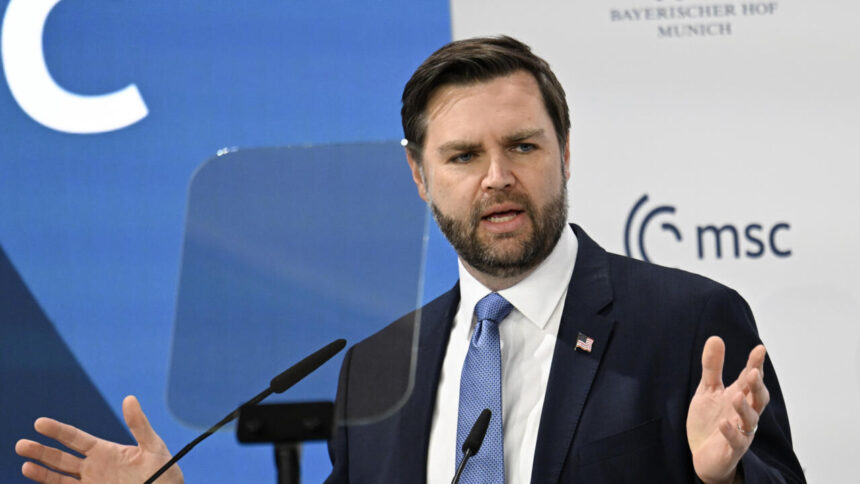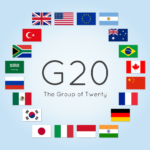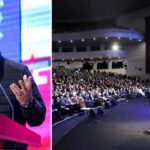Summary & Additional Remarks by Geopolist | Istanbul Center for Geopolitics:
This week, U.S. Vice President JD Vance made headlines with a speech that sent shockwaves through the Munich Security Conference, declaring that Europe—more than Russia or China—had become the real threat to democratic values. His remarks did not sit well with German Defense Minister Boris Pistorius, who was visibly frustrated in the audience. “This is unacceptable,” he was overheard saying.
European leaders, military officials, and intelligence chiefs had gathered in Munich expecting serious discussions on pressing issues: how to end Russia’s war on Ukraine, contain Vladimir Putin’s hybrid warfare, and strengthen the transatlantic alliance. Instead, Vance delivered a scathing attack, accusing European governments of suppressing free speech, failing to control mass immigration, and using language reminiscent of Soviet-era propagandists when discussing “misinformation” and “disinformation.”
The speech rattled Pistorius so much that he rushed to a side room with two advisers to rewrite his own remarks, which were scheduled for later that day. When he returned to the stage less than an hour later, he was still visibly angry. “He talks about the annihilation of democracy and, if I understood him correctly, he compares parts of Europe to authoritarian regimes,” Pistorius said. “Ladies and gentlemen, that is not acceptable.”
Vance’s words marked just the beginning of a week that left European leaders scrambling. By Wednesday, reports emerged that former U.S. President Donald Trump had personally called Vladimir Putin, urging him to begin “immediate” negotiations to end the war in Ukraine—without consulting European allies or Kyiv. That same day, it was revealed that U.S. Defense Secretary Pete Hegseth had already abandoned any prospect of NATO membership for Ukraine and conceded its territorial integrity before talks had even begun.
Nowhere in Europe was the fallout more intense than in Germany, which is preparing for elections next weekend under the looming presence of a rising far-right. For the past eight decades, Germany has relied on the transatlantic alliance to anchor its democratic resurgence, economic growth, and national security. Now, that foundation appears more fragile than ever.
Even Germany’s staunchest transatlanticists were stunned by Vance’s speech. Friedrich Merz, leader of the opposition Christian Democrats and the frontrunner to become the next German chancellor, accused the Trump administration of “openly interfering” in Germany’s election. “It is not the job of the American government to explain to us how to protect our democratic institutions,” he said.
German officials had braced for renewed tensions with Washington after Trump’s return to power. They expected criticism over Germany’s failure to meet NATO’s defense spending target of 2% of GDP. They were also prepared for the likelihood of fresh U.S. tariffs on German car exports. What they had not anticipated was an outright attack on the foundations of their political system—or a clear sign that the Trump administration was aligning itself with Germany’s far-right Alternative for Germany (AfD), a party long treated as politically toxic by the country’s mainstream.
In his speech on Friday, Vance explicitly called for an end to the political “firewall” that isolates the AfD. Shortly afterward, he took an unprecedented step—meeting with AfD co-leader Alice Weidel, despite the fact that conference organizers had barred her from attending the event. Meanwhile, reports surfaced that Vance had refused to meet with Germany’s Social Democratic Chancellor Olaf Scholz, whose party is expected to finish a distant third in next week’s elections.
Scholz did not mince words in his response. “Germany will not accept outsiders interfering in favor of this party in our democracy, in our elections,” he said in a speech on Saturday. “This is not appropriate, especially not among friends and allies. We will decide for ourselves what happens to our democracy.”
Vance’s remarks only added fuel to an already volatile political climate in Germany, which has been rocked by three deadly attacks in as many months, all carried out by asylum seekers. The latest attack, in which an Afghan national drove into a crowd of protesting union members, occurred just a kilometer away from the ornate Bayerische Hof hotel where the Munich conference was taking place.
The AfD, once so toxic that even France’s Marine Le Pen kept her distance, is now reveling in its newfound legitimacy on the global populist right. The party has already won the backing of tech billionaire Elon Musk, a key Trump ally, whom Weidel has courted for more than a year. Just days before the Munich conference, she traveled to Budapest, where Hungarian Prime Minister Viktor Orbán hailed her as “the future” and called for her full acceptance into mainstream European politics.
The Munich Security Conference has seen its fair share of transatlantic tensions over the years. In the past, German and U.S. officials clashed over George W. Bush’s invasion of Iraq and Germany’s involvement in the controversial Nord Stream 2 gas pipeline with Russia. But never before have the exchanges been this explosive.
European officials left Munich deeply divided over how to interpret Vance’s words. Some viewed them as a wake-up call—a sign that Europe needs to urgently devise a strategy to reduce its dependence on the U.S. Others dismissed them as political theater, arguing that Vance was being deliberately provocative rather than signaling a fundamental policy shift.
“We don’t want to break [with the U.S.], and I hope they don’t either,” said Kaja Kallas, the European Union’s chief diplomat. “We don’t want to start a fight based on public statements.”
But one senior European official put it more bluntly: “They’re not an adversary, but given what we heard today, we should think of the U.S. as a foreign country.”
Some German officials found a glimmer of hope in private discussions with U.S. representatives. Vance and Hegseth reportedly struck a more conciliatory tone behind closed doors. One European diplomat even quoted Hegseth as saying, “We know you are the good guys.”
Yet others remained deeply concerned. “Vance is a right-wing extremist, backed by U.S. tech oligarchs, whose goal is to gradually dismantle the EU,” warned Anton Hofreiter, a member of Germany’s Green Party.
Robert Habeck, Germany’s Green vice-chancellor, was even more alarmed. “This is a turning point in the relationship between Europe and the U.S.,” he said, accusing Washington of “siding rhetorically and politically with autocrats.”
Over the course of the weekend, he concluded, “the Western community of values was terminated here.”







